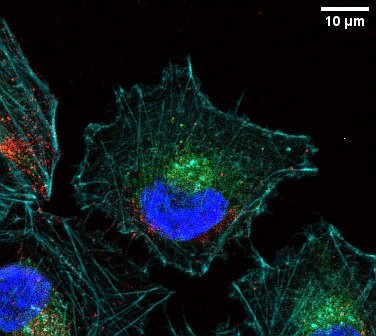Citizen Scientists Discover Rare Brightening of Cataclysmic Star GOTO0650

In a remarkable display of collaborative science, citizen scientists utilizing the Kilonova Seekers platform have identified a rare astronomical event, capturing a stellar flash from the cataclysmic variable star GOTO0650, which brightened 2,500 times in intensity. The detection, made within hours of the event on July 1, 2025, has provided astronomers with invaluable data about this celestial phenomenon, contributing to the understanding of late-stage cataclysmic variables.
The Kilonova Seekers project, spearheaded by the University of Warwick, invites volunteers to analyze real-time data from the Gravitational-wave Optical Transient Observer (GOTO) project, which features telescopes located in Spain and Australia. The volunteers’ rapid response to the appearance of GOTO0650 was crucial; they flagged the stellar event just 3.5 hours after it was captured by the GOTO telescopes, prompting immediate professional and amateur follow-up observations.
Dr. Tom Killestein, a Warwick Prize Fellow in the Astronomy and Astrophysics group at the University of Warwick, stated, "Kilonova Seekers is a unique opportunity for members of the public to take part in true real-time astrophysics. Remarkably, public volunteers identified this star as an object of interest within 3.5 hours of the image being taken by the GOTO telescopes. This discovery could have been missed among many other objects without their efforts."
GOTO0650 was classified as a cataclysmic variable star, a type of binary star system where a white dwarf star accumulates material from its companion star. These systems are known for their unpredictable brightening events, which occur when the accumulated material reaches critical densities and temperatures, causing explosive outbursts. The observations made by citizen scientists, combined with data from space observatories such as Swift and Einstein Probe, have provided a comprehensive dataset that includes spectroscopy, X-ray, and ultraviolet measurements, essential for understanding the star's behavior.
Dr. Lisa Kelsey, a Leverhulme Early Career Fellow at the Institute of Astronomy and Kavli Institute for Cosmology, Cambridge, remarked, "Citizen science is a powerful way to make novel serendipitous discoveries in vast datasets that would normally need to be analyzed in depth by scientists. The discovery of GOTO0650 is really the pinnacle of two years of consistent hard work from our volunteers."
The Kilonova Seekers project has engaged over 3,500 members of the public, allowing them to participate in significant astronomical discoveries. The diversity of the volunteers, hailing from various parts of the world, enriches the initiative. One volunteer, Svetoslav Alexandrov from Bulgaria, noted the personal significance of his involvement, stating, "Contributing to citizen science is an excellent way to pass time. I literally screamed with joy when I saw that I was going to be a co-author of the research paper."
The GOTO project, primarily funded by the Science and Technology Facilities Council (STFC), operates telescopes that capture all-sky survey images. With the increasing volume of data generated from these celestial observations, citizen science emerges as a vital solution to ensure that significant phenomena, like GOTO0650, are not overlooked.
This discovery not only emphasizes the importance of citizen involvement in scientific research but also highlights the evolving landscape of astronomical observation, where public engagement can lead to groundbreaking discoveries. As the Kilonova Seekers project approaches its two-year anniversary, it stands as a testament to the potential of collaborative efforts between professional astronomers and amateur enthusiasts in the realm of astrophysics.
Advertisement
Tags
Advertisement





